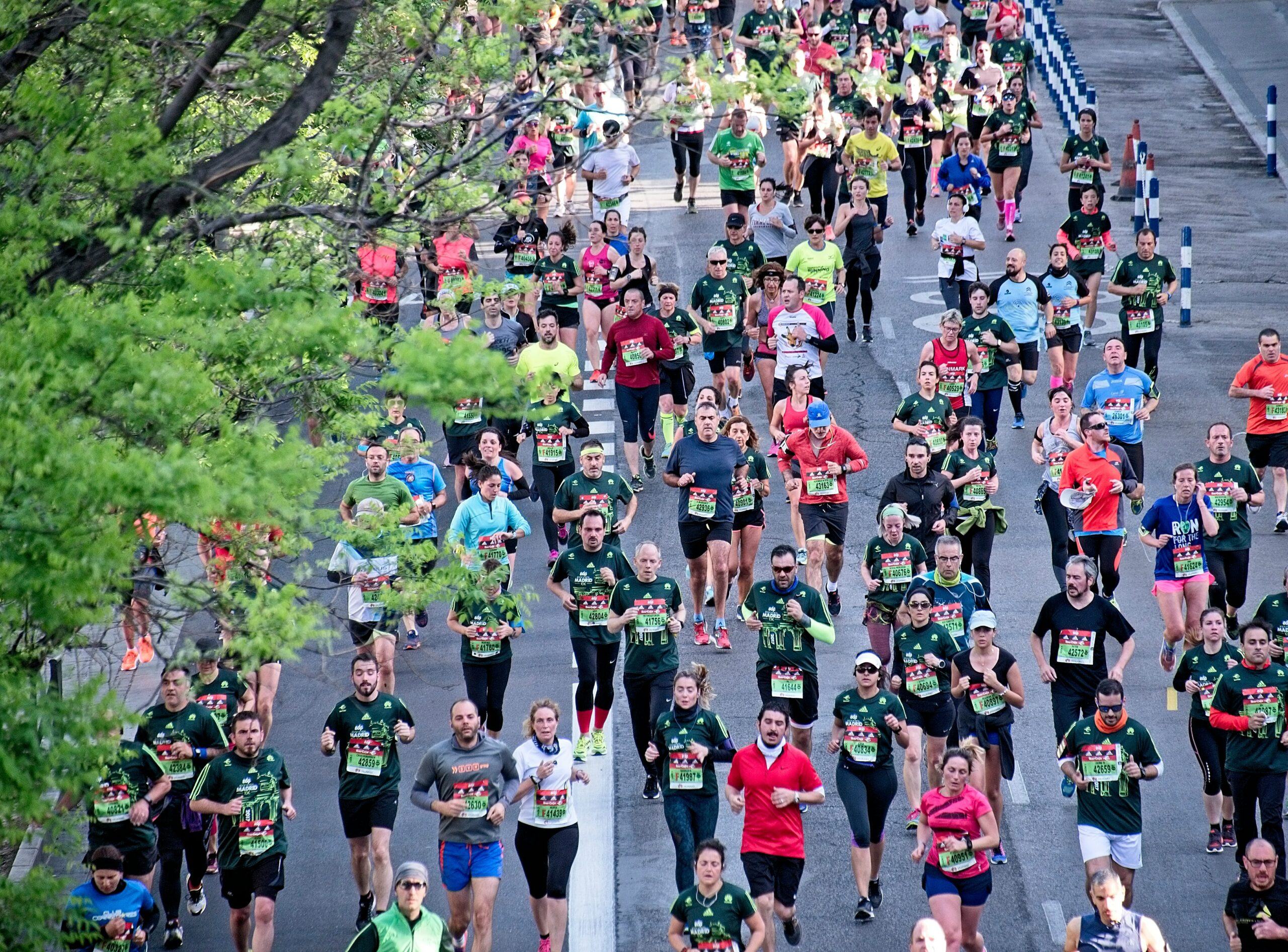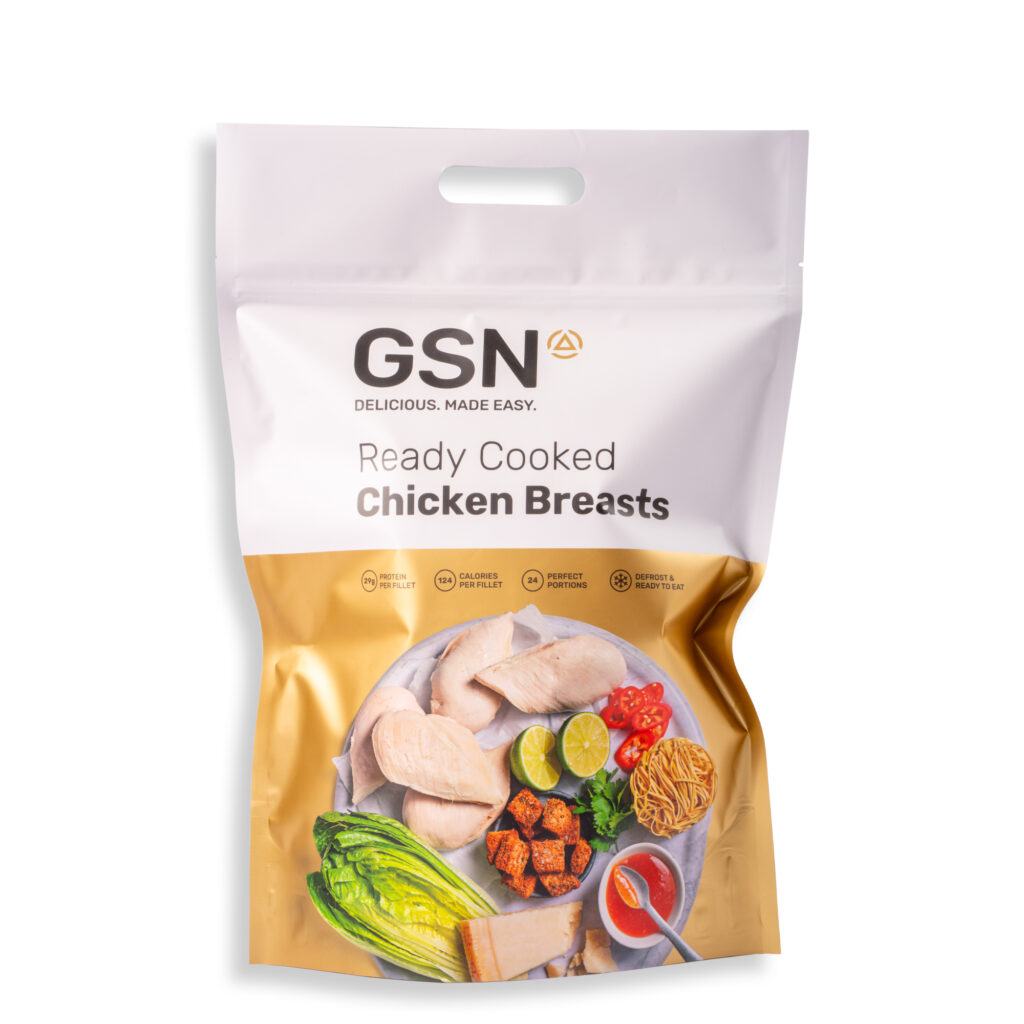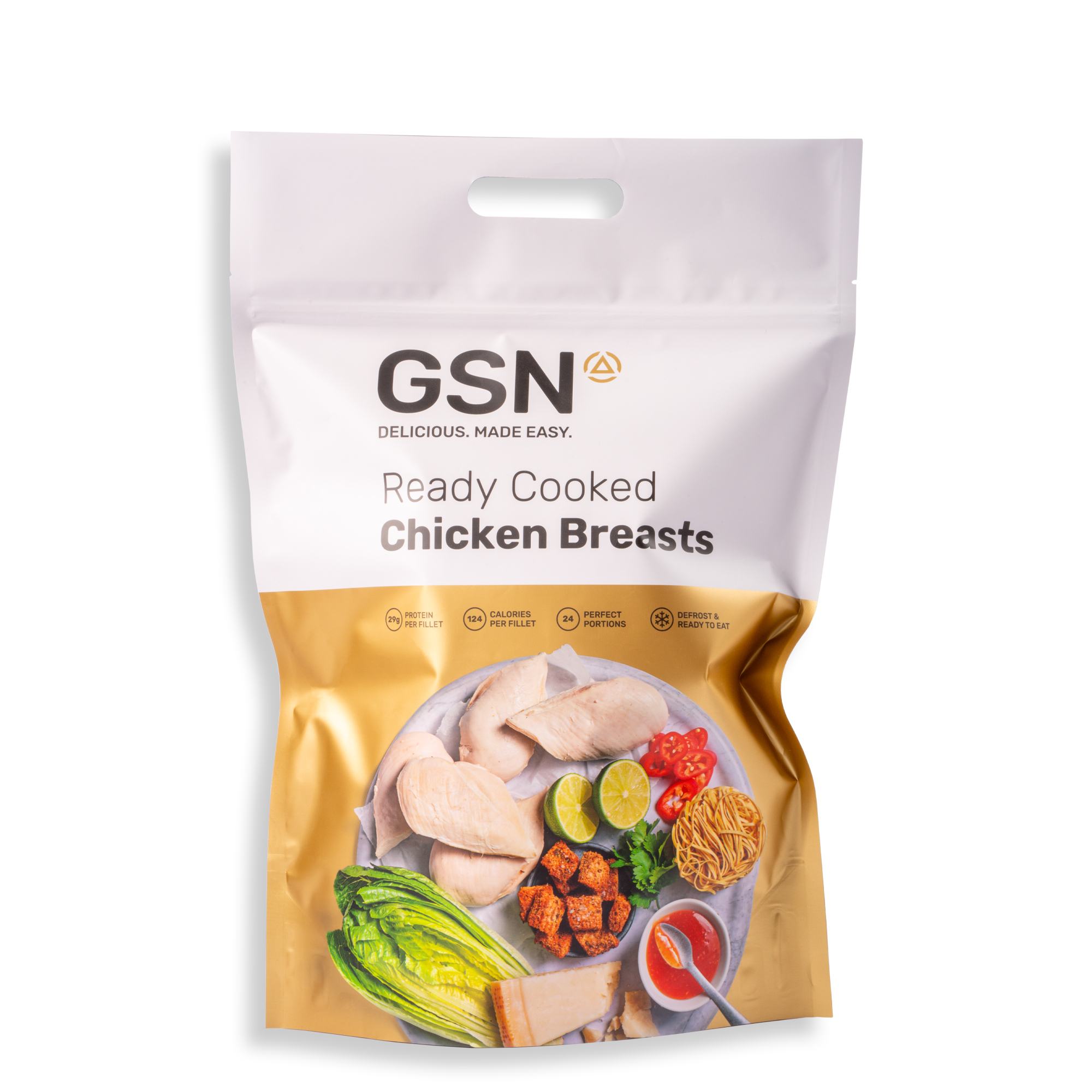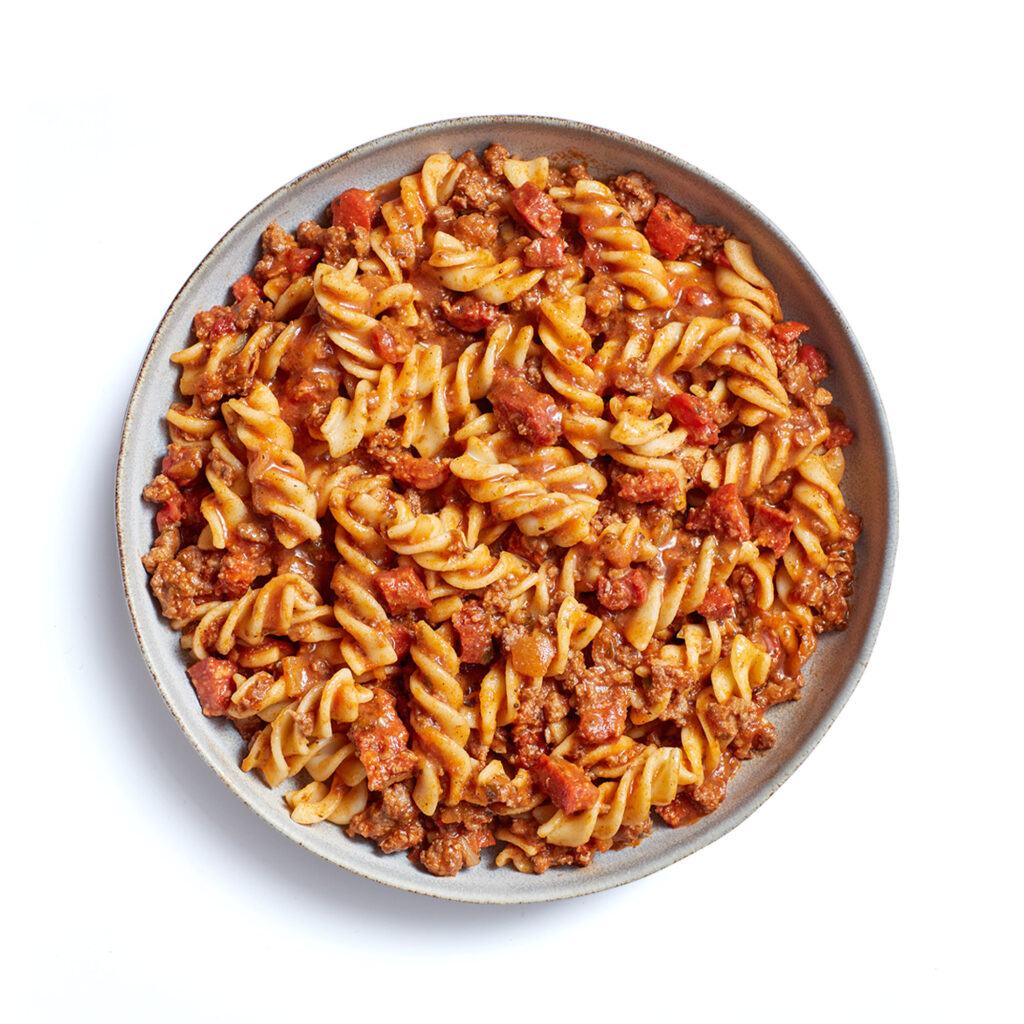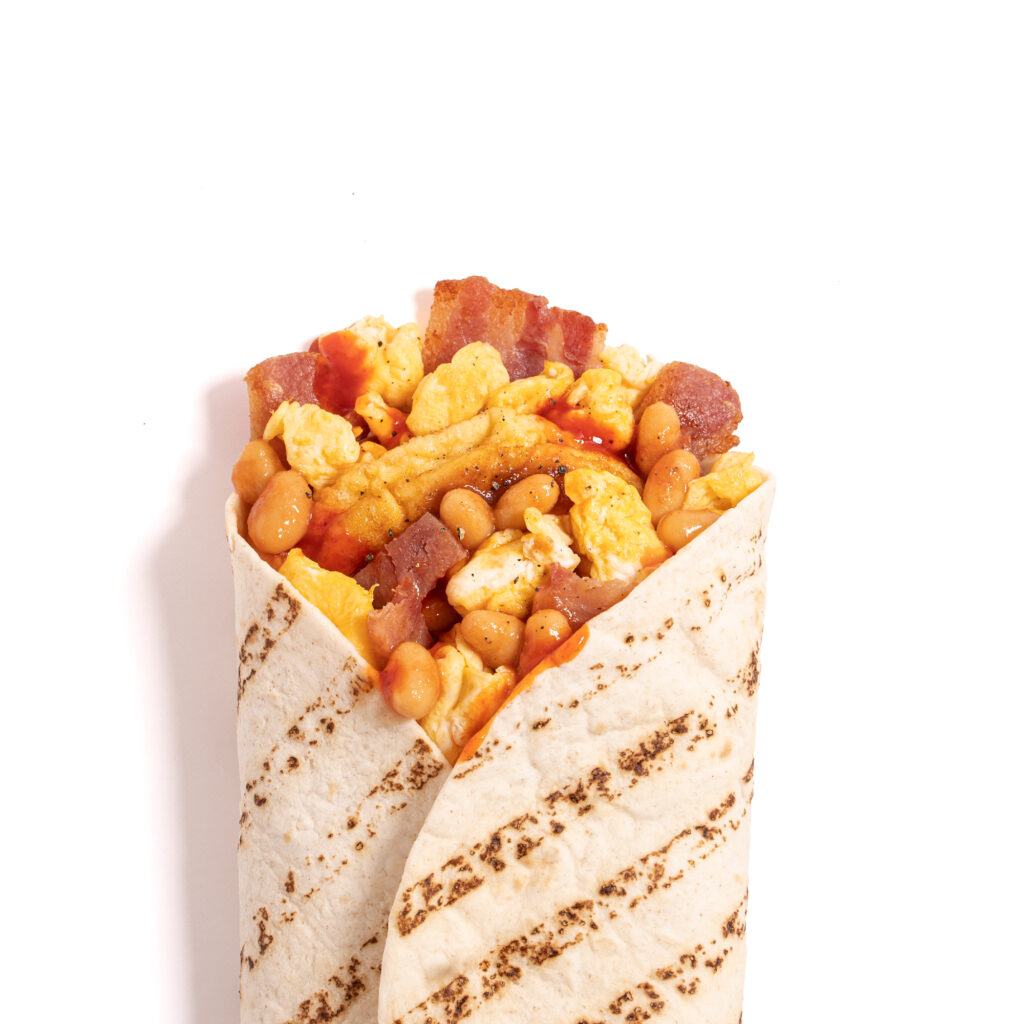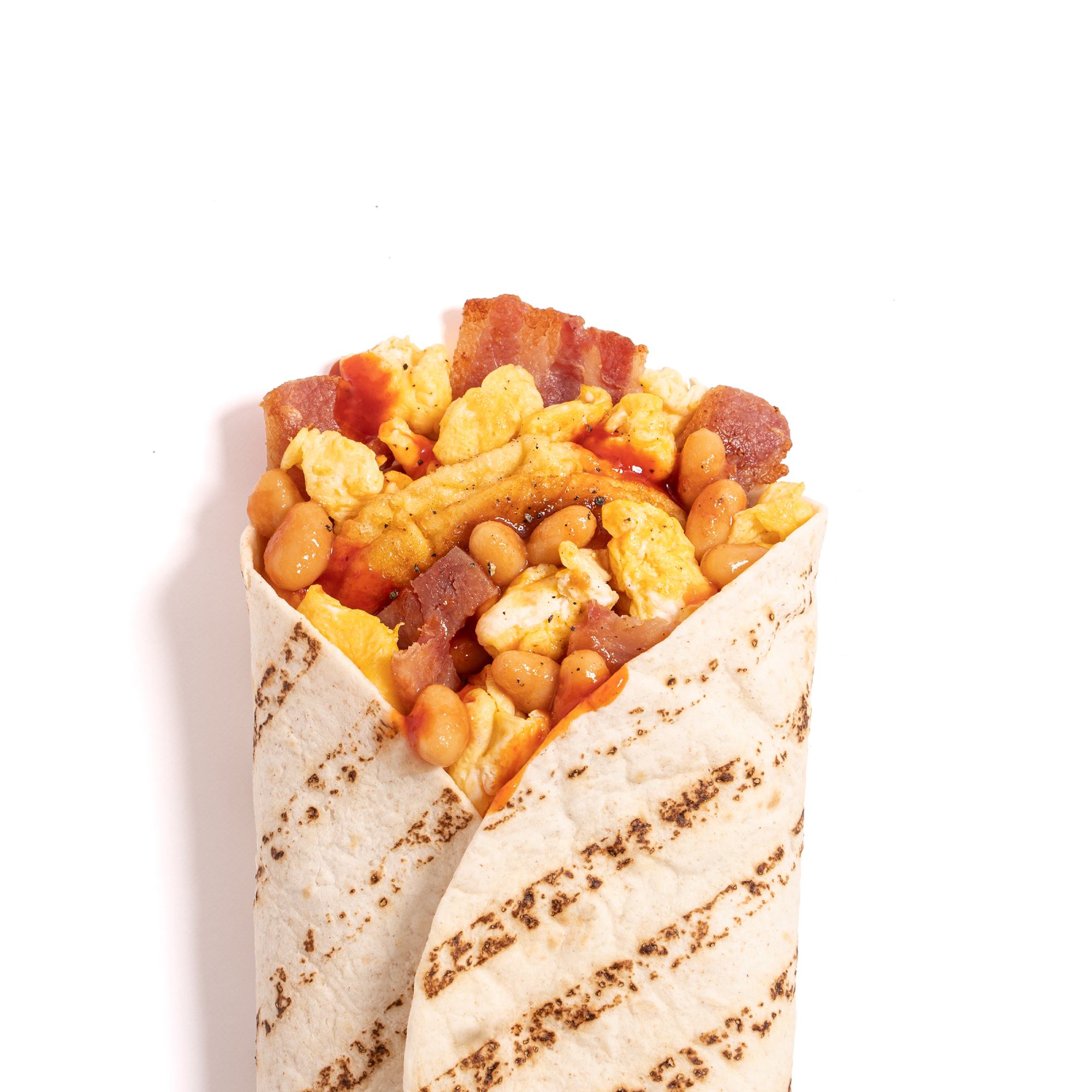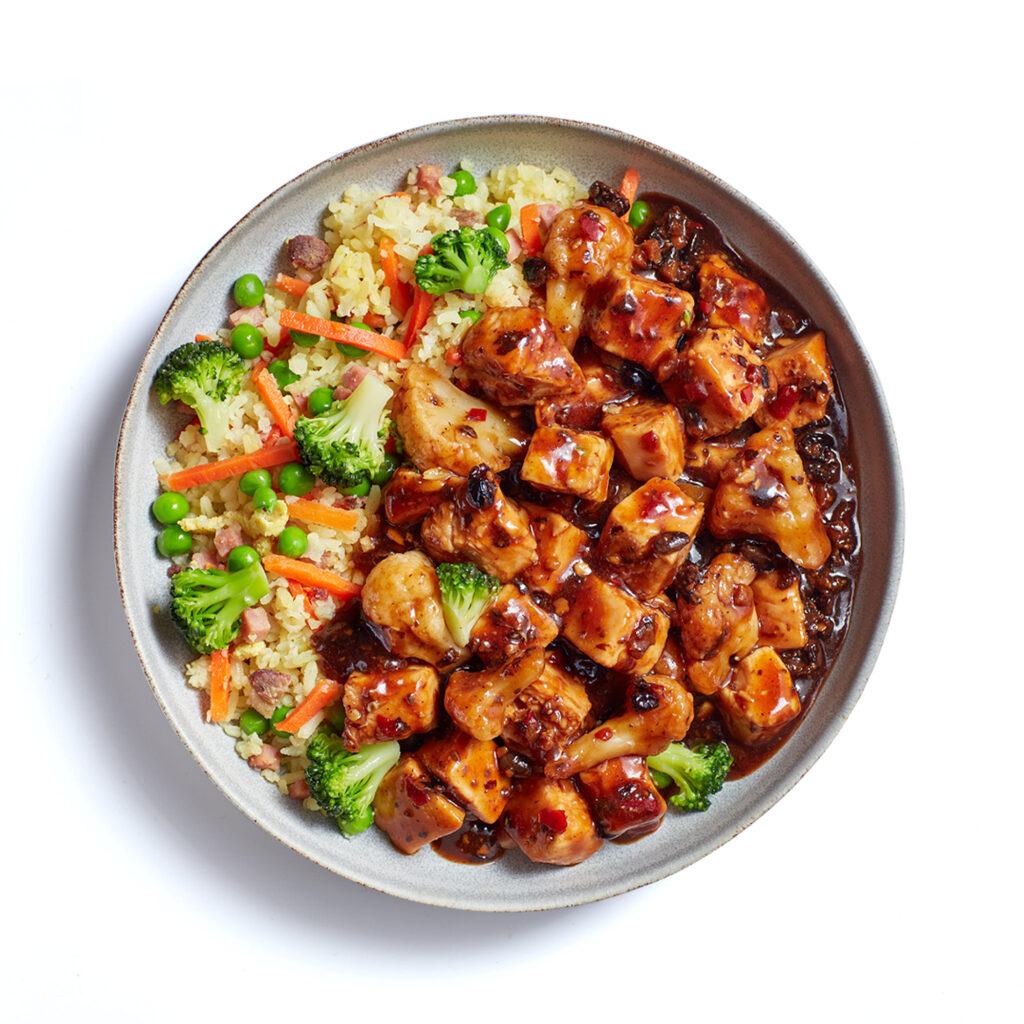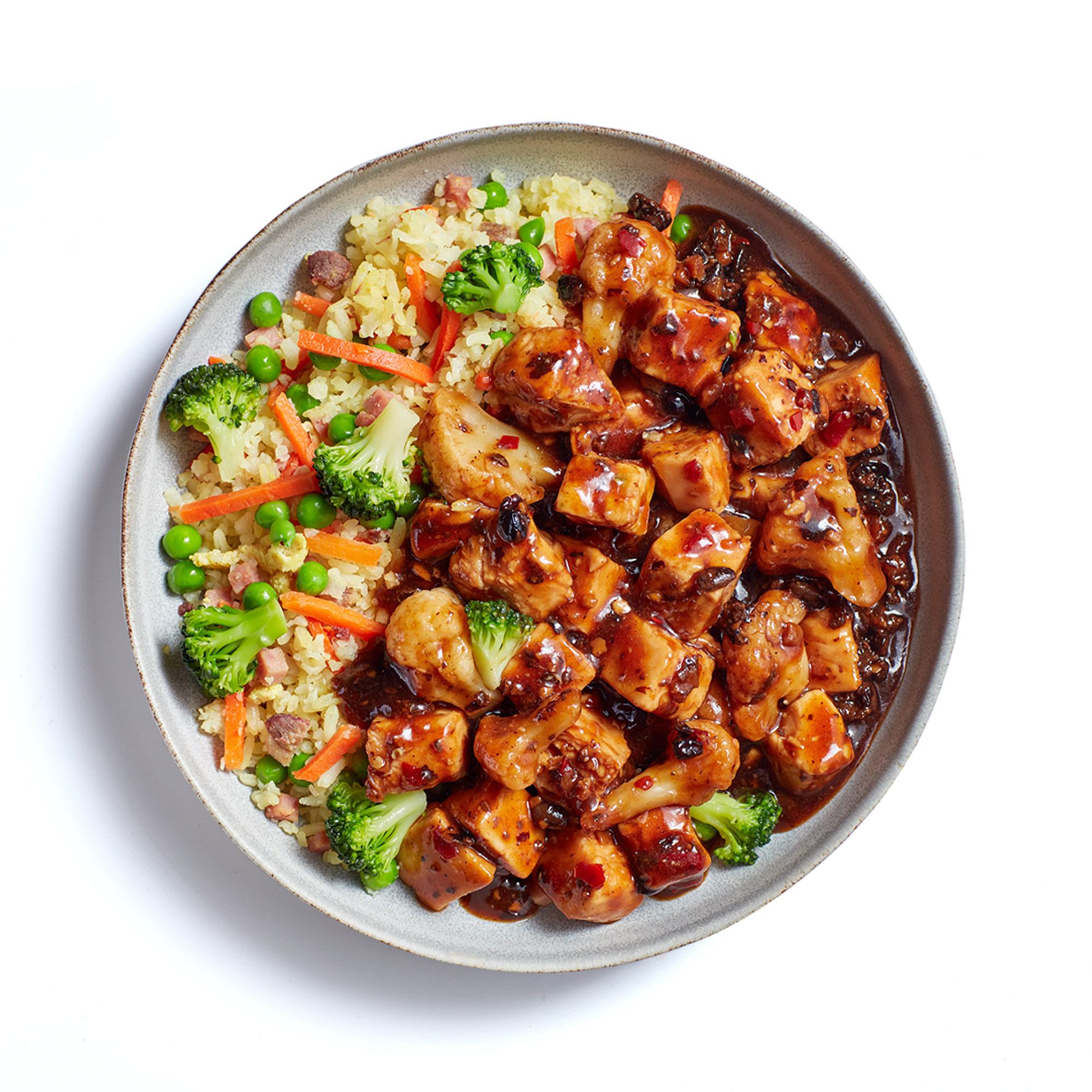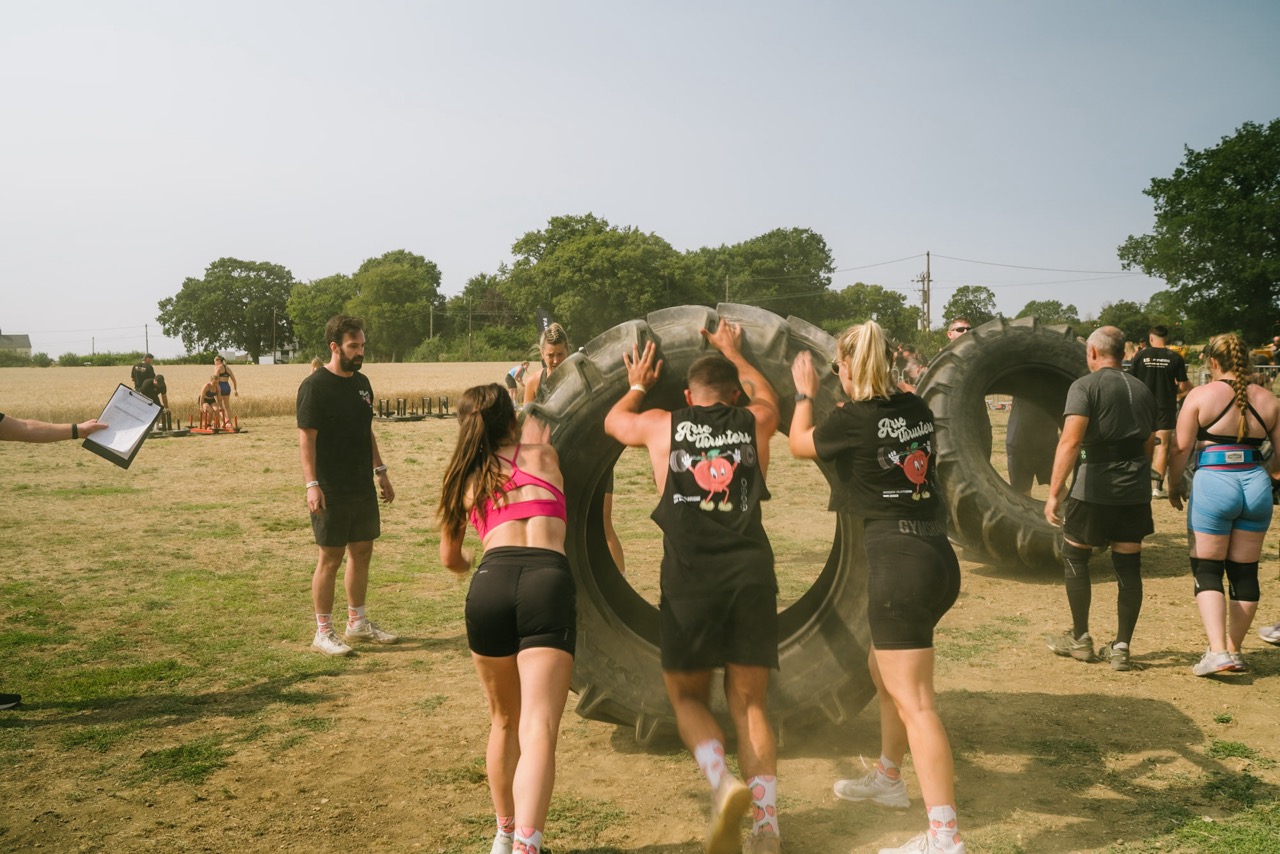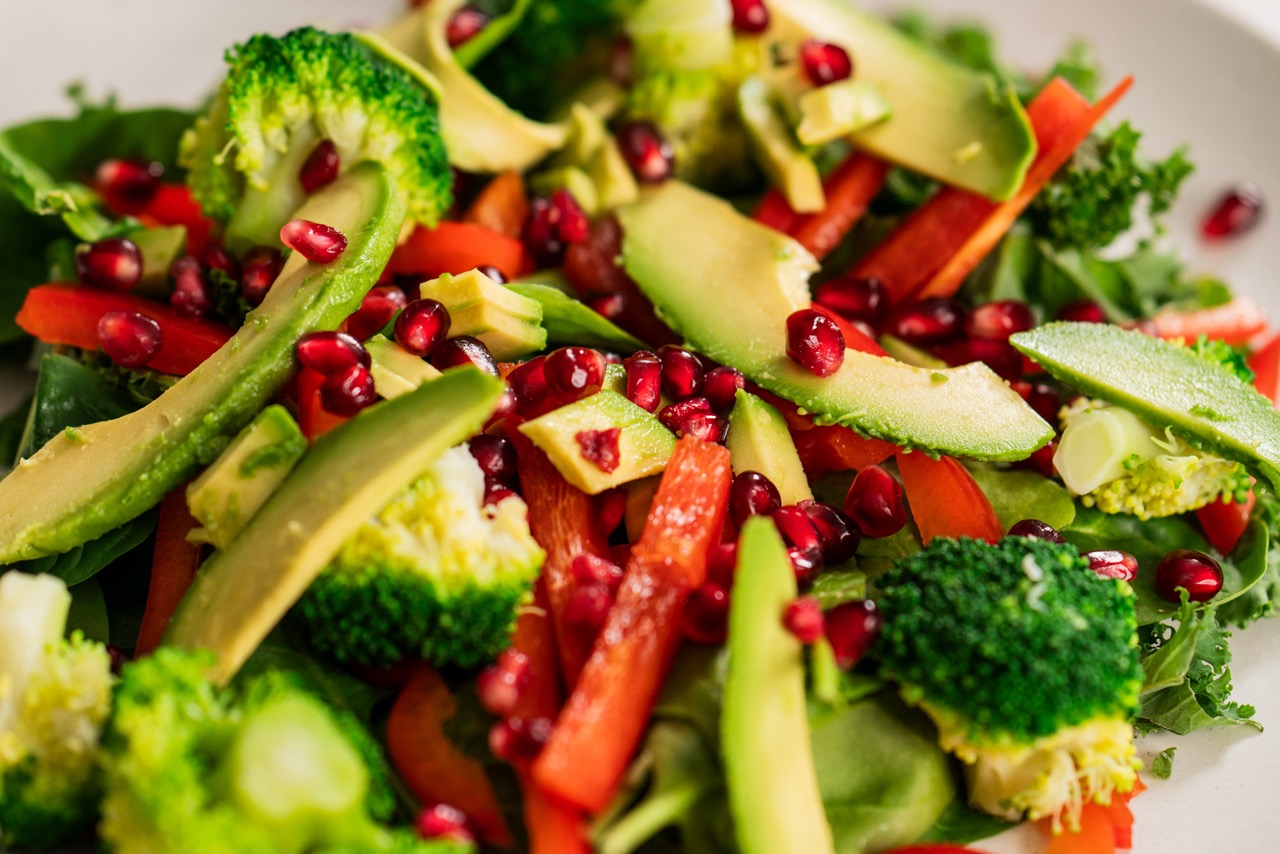Last Minute London Marathon: 3-Week Plan
Running a ‘Last Minute London Marathon’ may not have been your original plan, but here you are.
Maybe you’ve just landed a charity place. Perhaps life got in the way, and your training didn’t go as expected. Or maybe, like thousands of runners every year, you’re simply not feeling as prepared as you’d like with race day fast approaching.
The good news? You still have time to make a big difference. This guide is built for runners taking on the ‘Last Minute London Marathon‘ challenge who need a smart, strategic plan to get them across the finish line without overtraining, panicking, or risking injury.
We’ll show you how to maximise the next three weeks with realistic training, a science-backed carb-loading strategy, and practical nutrition support that fits busy lives. Whether your goal is to finish strong, beat the wall, or prove to yourself that you can do it, this guide is designed to help you get there — even at the last minute.
Can You Prepare for a Marathon Last Minute?
Short answer: Yes, if you’re smart about it.
The most common mistake runners make in the final weeks before a marathon is trying to “make up for lost time.” That usually means panic training, last-minute long runs, or overloading the body just when it should be recovering. This almost always leads to injury, burnout, or race-day fatigue.
Instead, the key to surviving a ‘last minute London Marathon’ is this:
- Follow a gentle taper: reduce training, don’t stop entirely
- Dial in your fuelling, especially carbohydrate intake and hydration
- Stay consistent, sleep well, and avoid drastic changes
Even experienced runners get these things wrong, but when done right, tapering and carb-loading can make a massive difference to your energy levels, endurance, and mental resilience on race day.
What This Guide Covers
This isn’t a full couch-to-marathon training plan. Instead, this is your last-minute survival kit for the London Marathon. We’ll cover:
- A realistic, three-week tapering and training schedule
- How and when to carb load effectively
- Race week nutrition tips and pre-race fuel plans
- Sample meals, hydration advice, and quick meal options
- Printable race day checklist
We’ll also include helpful shortcuts, like GSN’s high-protein ready meals and Greek Souvlaki Wraps, that support your race prep when time or energy is low.
Who This Is For
If you’re running the ‘Last Minute London Marathon’ and want to feel fuelled, prepared, and confident, this is for you.
Whether it’s your first or fifth marathon, this plan is designed to reduce stress, simplify your prep, and help you feel like you belong on that start line.
Let’s get started. Next: the science of tapering, carb-loading, and how to train smart, not hard, with just weeks to go.

The Science of Training Smart for a Last Minute London Marathon
Preparing for the London Marathon late isn’t about cramming in last-minute miles. It’s about understanding how your body works and using the time you do have in the smartest way possible. That’s where two key concepts come into play: tapering and carb-loading.
Even if you feel undertrained, a structured taper combined with proper fuelling can help you perform better than expected. Some runners hit personal bests after reducing their training load and prioritising recovery. Why? Because they finally give their body time to adapt, absorb fitness, and restore energy reserves, especially when paired with a solid carb load.
Why Tapering Matters in a Last Minute London Marathon Plan
Tapering is gradually reducing training volume in the final weeks before a race. Instead of squeezing in more mileage and risking injury, you shift the focus toward recovery, mobility, and light intensity. This gives your muscles time to repair and rebuild while keeping your legs “primed” for race day.
Studies have shown that tapering can improve performance by up to 3%, which could mean finishing several minutes faster or feeling more potent for longer. If you’re running a ‘Last Minute London Marathon’, a well-executed taper is your best tool for building freshness and resilience.
What Is Carb Loading — and Why Does It Work?
During a marathon, your primary fuel source is glycogen, which is stored carbohydrates in your muscles and liver. As the race goes on, those stores are depleted. When they run out, that’s when you “hit the wall”: energy crashes, legs feel like lead, and everything slows down.
Carb-loading is a proven strategy to increase glycogen stores before a race. It typically involves eating more carbohydrates (8–12g per kilogram of bodyweight per day) in the final 36–48 hours before the event. This fuels your muscles to go longer. Especially useful if you’re not at peak training volume.
Scientific research confirms that proper carb-loading improves endurance and delays fatigue. It’s one of the most powerful tools in your race-day toolkit and one that last-minute runners often overlook.
What You Should Focus On Right Now
With just weeks to go, your focus should shift from mileage to readiness. That means:
- Running shorter distances at an easy pace to reduce muscle fatigue
- Improving sleep, stress management, and recovery habits
- Dialling in your meals and hydration strategy
The taper is not about being inactive but preserving energy and maintaining sharpness. You’ll still be training, but with reduced volume and greater intent. Every run should feel purposeful and manageable, not exhausting.
Your Training & Nutrition Combo Plan
Here’s what you’ll find in the coming sections of this Last Minute London Marathon plan:
- Week 1: Maintain fitness, build routine, and increase complex carbs
- Week 2: Begin tapering, reduce fibre, refine hydration and nutrition
- Week 3: Final taper + structured carb loading + race day prep
Each week also includes food suggestions to keep things simple. If you’re short on time, try meal shortcuts like GSN Pots of Gold or Ready Cooked Chicken paired with white rice, couscous, or pasta. These high-protein options are perfect for fast, no-fuss meals during taper weeks.
The Takeaway
If you’re taking on the ‘Last Minute London Marathon’, remember that you’re not trying to gain more fitness — you’re preserving and fuelling what you have correctly. The next three weeks are about showing up as the best version of yourself on race day, not burning yourself out trying to make up for the past.
Let’s get into Week One: the foundation of your taper and the start of your carb-smart prep.

Week One: Building the Base for Your Last Minute London Marathon
Welcome to Week One of your last-minute London Marathon prep. This week is all about building rhythm, fuelling well, and avoiding the temptation to panic-train.
The most important thing to understand right now is that you can’t build much more fitness, but you can protect what you’ve got and lay the foundation for a strong finish.
By easing into a taper and shifting your focus to energy, nutrition, and recovery, you’ll feel fresher, lighter, and more confident by race week. Trust the process; your body responds surprisingly well to rest and smart fuelling, even if training has been inconsistent.
Your Training Plan: Start Tapering, Not Stopping
We’re not stopping movement entirely; that would make your legs feel sluggish. Instead, we’re tapering the volume gently. This means fewer total miles, but enough activity to keep you ticking over.
- Monday: Rest or 20 mins of gentle stretching/yoga
- Tuesday: 40-minute easy run (keep your pace conversational)
- Wednesday: Bodyweight strength or mobility session
- Thursday: 45-minute steady run (slightly faster than Tuesday, but still comfortable)
- Friday: Rest
- Saturday: 60- to 70-minute run (slow, relaxed pace; don’t worry about distance)
- Sunday: 20-minute shakeout jog or active walk
Note: All runs should feel light and manageable. No sprints. No hill repeats, no high heart rates. You’re tuning up, not pushing limits.
Fuelling Right for the ‘Last Minute London Marathon’
Nutrition plays a vital role from Day One. While full carb-loading begins in Week Three, this week should start shifting your diet toward performance-friendly foods.
Focus on complex carbohydrates like oats, brown rice, sweet potatoes, and wholemeal bread. These provide sustained energy, stabilise blood sugar, and support recovery, especially when paired with lean protein and vegetables.
Sample Meal Ideas:
- Breakfast: Porridge with banana and peanut butter
- Lunch: GSN High Protein Wrap, Wholegrain wrap with chicken, hummus, and salad
- Dinner: GSN Pot O Gold, Brown rice, roasted vegetables, and grilled salmon or tofu
- Snacks: Fruit, yoghurt, flapjacks, oatcakes with nut butter
For convenience, consider using GSN Ready Cooked Chicken in wraps or grain bowls. It’s protein-packed, fuss-free, and ideal when energy’s low or time is tight.
Hydration: Build the Habit Early
One of the best things you can do in Week One is establish consistent hydration habits. When you’re adequately hydrated, your muscles and brain work better, and you’ll need that routine already in place when carb-loading starts.
- Carry a water bottle and sip throughout the day
- Add electrolytes if training indoors or sweating heavily
- Limit caffeine after 2-3 pm to improve sleep quality
Mindset: Don’t Compare, Just Prepare
One of the biggest hurdles in any last-minute London Marathon prep is mental, not physical. It’s easy to compare your progress to others, especially if friends are clocking up 18-mile runs on Strava. But comparison kills confidence.
Your goal isn’t to run fast. It’s to run smart. Every easy run and solid meal you manage this week moves you one step closer to finishing strong.
Week One Summary:
- 🟢 Stick to 3–4 easy runs with no pressure on pace
- 🥗 Prioritise complex carbs and balanced meals
- 💧 Begin consistent hydration and sleep routines
- 🧠 Focus on rhythm, not performance
Up next: Week Two — where the taper begins in earnest and your nutrition becomes even more race-specific.

Week Two: Tapering and Nutrition Strategy for the ‘Last Minute London Marathon’
As you enter Week Two of your ‘Last Minute London Marathon plan,’ you’re in full taper mode.
This week aims to reduce your training load without going completely sedentary. You’ll continue to move, stay sharp, and avoid stiffness while giving your body a real chance to recover and replenish.
At the same time, this is the week when your nutrition strategy begins to shift. You’ll start easing into lower-fibre carbs, managing hydration more intentionally, and laying the groundwork for your full carb load next week.
Training Plan: Fine-Tuning Your Marathon Taper
Less is more right now. You’re keeping the legs active, but mileage is dropping, intensity is low, and recovery is the top priority. Every session should feel smooth and comfortable, not exhausting.
- Monday: Full rest or light walk/stretch
- Tuesday: 30-minute easy run with three short pick-ups (brief, relaxed surges)
- Wednesday: Core, mobility, or yoga session (20-30 minutes)
- Thursday: 35-40 minute steady run (your “happy pace”)
- Friday: Rest
- Saturday: 40-50 minute long run: easy pace, just for confidence
- Sunday: 20-minute shakeout jog or complete rest
Note: You should finish every session this week feeling like you could’ve gone longer but chose not to. That’s how you build freshness, not fatigue.
Nutrition: Prepare Your Body for Carb Loading
Your body is about to enter a phase of maximum energy storage, but it needs the right conditions. In week two, you start decreasing fibre and increasing digestion-friendly carbohydrates. This helps avoid bloating and primes your gut for the full glycogen load in race week.
Shift toward:
- White rice, plain pasta, sourdough, couscous
- Low-fibre fruits: bananas, peeled apples, canned peaches
- Cooked veg over raw, peeled potatoes over skins
- Lean proteins: chicken, turkey, white fish, eggs
Ease back on:
- Beans, lentils, cruciferous veg (broccoli, cabbage)
- Wholegrains, seeded bread, and large raw salads
Try simple, balanced meals like white pasta with olive oil and chicken or rice with GSN Pots of Gold. They are fast, convenient, and low-fibre, which is perfect for taper week.
Hydration: Build a Steady Flow
Start treating hydration like part of your training. Glycogen and water are stored in your muscles, so staying hydrated this week supports better carb-loading next week.
- Drink small amounts regularly (don’t chug litres all at once)
- Add electrolytes once per day if training or sweating
- Limit alcohol and avoid overdoing caffeine
Mindset: Reframe Rest as Preparation
This week can feel strange: fewer runs, more rest. You may even feel heavier or slower. That’s normal. It’s your body adjusting to the taper and replenishing energy stores. Trust that this recovery is what leads to strong performance on race day.
Week Two Checklist for Last Minute London Marathon Success
- 🟢 Stay active with short, relaxed sessions
- 🥗 Begin shifting to low-fibre carbs
- 💧 Hydrate consistently and add electrolytes
- 🧠 Focus on rest, confidence, and routine
Coming up next: Week Three. Your full carb-loading breakdown, race-day fuelling strategy, and final prep for the Last Minute London Marathon.
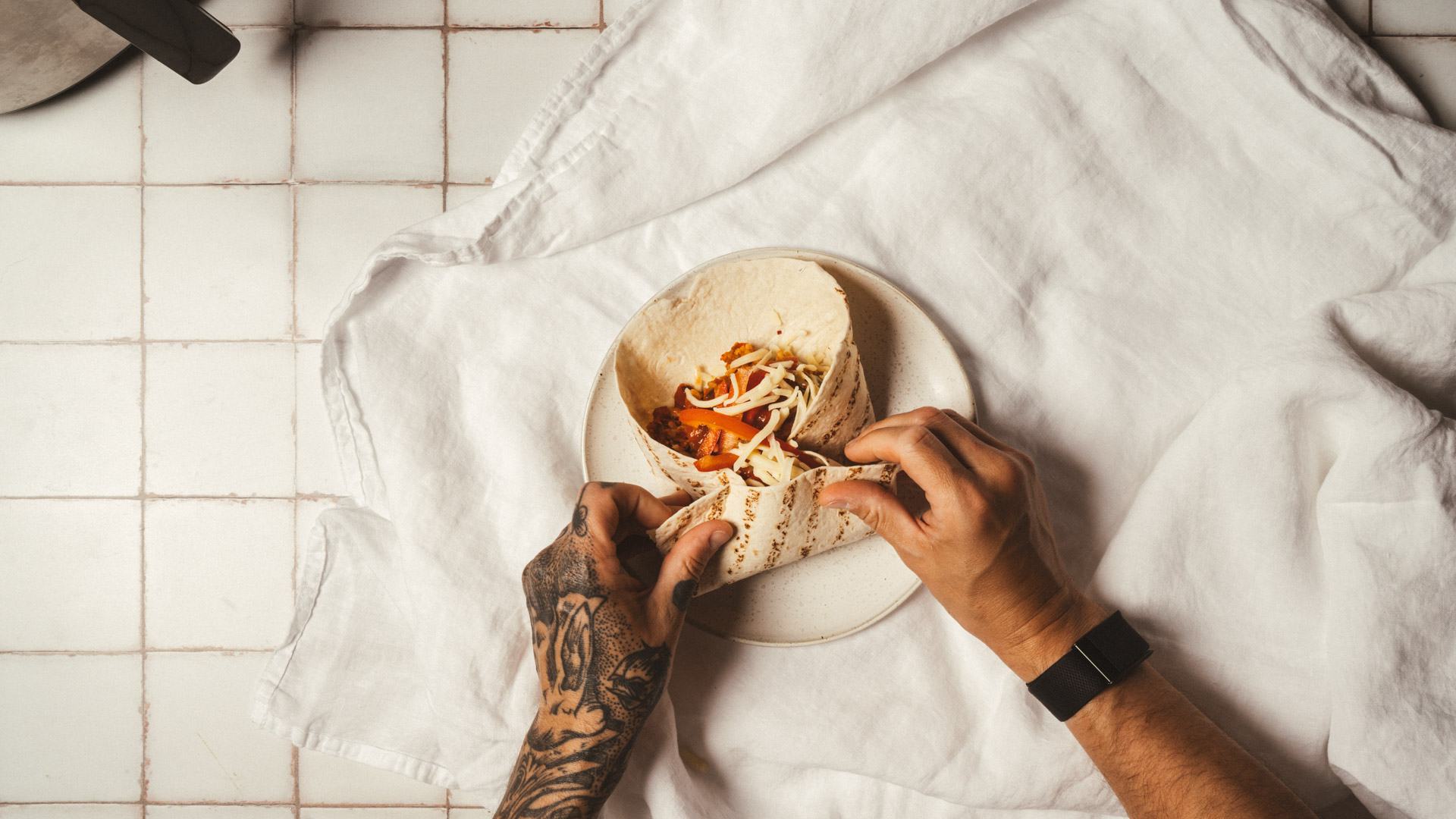
Week Three: Race Week & Carb Loading for the Last Minute London Marathon
This is it! The final countdown to the ‘Last Minute London Marathon’. You’ve trained smart and tapered well, and now it’s time to maximise your energy stores, fine-tune your routine, and focus on recovery, rest, and race day execution.
The key strategy this week is carb-loading, which means deliberately fueling your body with glycogen-rich foods to provide long-lasting energy on marathon day. Done correctly, it can improve endurance, delay fatigue, and help you maintain pace right to the finish line.
Training Plan: Minimal Movement, Maximum Freshness
In your final week, the training is light and purposeful. No surprises, no intensity. It’s all about keeping your legs moving, avoiding stiffness, and staying relaxed.
- Monday: 20-30 minute easy jog + 4 strides
- Tuesday: Full rest or light walk
- Wednesday: 20-minute jog + stretching
- Thursday: Optional 15-minute shakeout jog
- Friday: Rest + prep gear and race kit
- Saturday: Full rest – mental and physical recharge
- Sunday: Race Day!
Less is more this week. You’ve done the work; now it’s about executing a smart taper and focusing on the fueling that will carry you through the 26.2 miles ahead.
Carb Loading for the ‘Last Minute London Marathon’
Carb-loading isn’t about stuffing yourself with bread and pasta for a week — it’s a targeted strategy, usually starting 36–48 hours before your race. For the London Marathon, that means beginning first thing Friday morning.
When done correctly, carb-loading saturates your muscles with glycogen, giving you the fuel to go further without hitting “the wall.” According to research published in the journal Sports Medicine, glycogen loading can increase endurance performance by up to 3%, a meaningful gain, especially for first-time or last-minute marathoners.
How much to eat:
Aim for 8-12g of carbohydrates per kilogram of body weight per day. For a 70-kg runner, that’s 560–840g of carbs per day.
What to eat:
- White pasta, white rice, plain bread, crumpets, bagels
- Low-fibre fruit: bananas, peeled apples, canned peaches
- Cereal with milk or yoghurt, fruit juice, rice pudding
- Jam, honey, energy bars, soft pretzels, rice cakes
Don’t worry if that sounds like a lot. Spread it out across 5-6 meals or snacks. Focus on familiar, simple foods you know your stomach can tolerate.
GSN Meal Ideas for Easy Carb Loading
Race week is not the time to experiment in the kitchen. If you’re busy, tired, or just want to keep it simple, use GSN products to make fuelling easy:
- GSN Ready Cooked Chicken with white rice and a little soy sauce or sweet chilli
- Greek Souvlaki Wrap with a side of white pasta or boiled potatoes
- GSN Pots of Gold – a quick lunch to keep you nourished and race-ready
Pair these with fruit juice, jam sandwiches, and light snacks throughout the day to keep carbs coming in gradually.
Hydration: Glycogen Needs Water
When you load up on carbohydrates, your body stores glycogen along with water. That’s why hydration is so important this week. Without enough fluids, you won’t store glycogen efficiently, and you risk starting the race when you are already dehydrated.
- Drink water throughout the day, not just at mealtimes
- Add electrolytes once or twice daily, especially if it’s warm
- Avoid alcohol and limit caffeine to protect sleep quality
Race Morning Fuel Strategy
- Eat 3-4 hours before race start: Something high in carbs and low in fibre
- Examples: White toast with jam and banana, cereal with milk, rice pudding
- Stick to familiar foods: don’t try anything new
During the race, aim to consume 30–60g of carbs per hour using gels, energy drinks, or chews you’ve trained with. Sip water at each aid station and use your first gel no later than 45 minutes in.
This Week Is All About Execution
- 🟢 Keep runs short and easy
- 🥯 Carb-load starting Friday morning
- 💧 Hydrate consistently, especially alongside meals
- 🧠 Stay calm, rest well, and visualise your pacing strategy
You’ve made it through the training, the nutrition, and the build-up. Now it’s time to put it all together and run your ‘Last Minute London Marathon’ with confidence. All that’s left is a simple checklist to make sure nothing gets forgotten on race weekend.
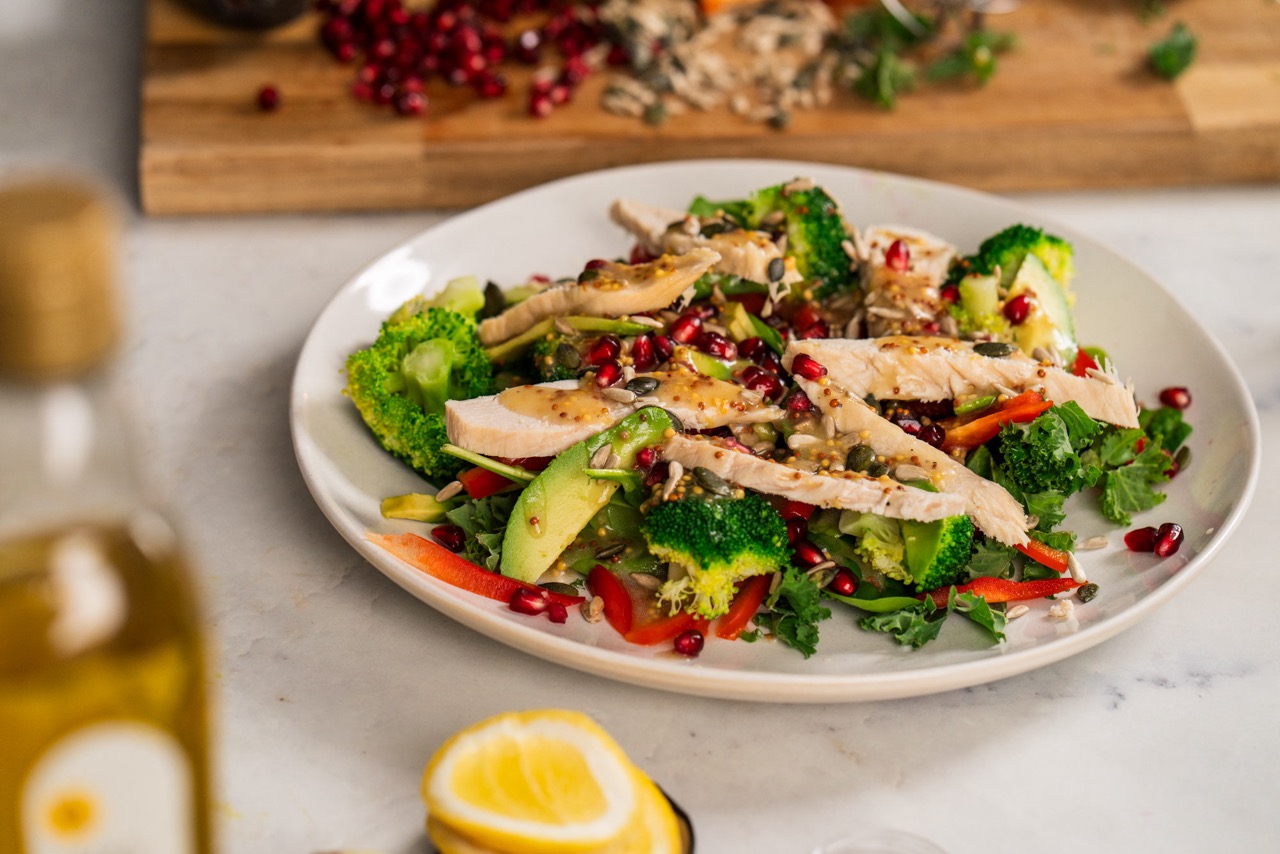
Final Checklist: Your Last Minute London Marathon Game Plan
You’ve made it to the final week. You’ve followed a smart, structured plan tailored for the ‘Last Minute London Marathon’. Whether you’ve trained for months or just picked up the pace in the past three weeks, this checklist will help you stay calm, organised, and ready for race day.
Below, you’ll find everything you need to confirm you’re prepped — from fuelling and pacing to kit and mindset. Use it as your final tune-up before the big day.
✅ ‘Last-Minute London Marathon’ Prep Checklist
- ✓ Taper complete: You’ve reduced volume, kept intensity low, and prioritised recovery
- ✓ Carb-loading started 36-48 hours out: You’ve increased carb intake to 8–12g/kg/day
- ✓ Fibre intake reduced: You’ve switched to white rice, pasta, peeled fruit, and easy-to-digest meals
- ✓ Hydration consistent: You’ve sipped water regularly and included electrolytes as needed
- ✓ Familiar meals only: You’re sticking with foods your body knows. No race-day surprises
🎒 Race Day Packing List
- Running kit (top, bottoms, socks, shoes)
- Race number and safety pins
- Energy gels, chews, or sports drinks you’ve trained with
- Water bottle or hydration pack (optional)
- Anti-chafe balm or tape (inner thighs, nipples, feet)
- Sun cream, hat, gloves or jacket (depending on the weather)
- Post-race clothes: hoodie, joggers, clean socks, sliders
- Pre-race snack and water bottle for the start line
🍽️ GSN-Style Final Fuelling
For the night before the race, your meal should be carb-heavy, low-fibre, and familiar. Need something easy? Try:
- GSN Ready Cooked Chicken with white rice and soy or tomato sauce
- White pasta with olive oil and grated cheese or lean meat
- A soft bagel with peanut butter and a banana
On race morning, eat 3 to 4 hours before the start. Stick to your usual routine: toast, cereal, porridge, or rice pudding all work well.
🏁 Final Race Day Tips for the ‘Last Minute’ London Marathon Runner
- Arrive early: Allow time for toilet queues, warm-up, and navigation of the start area
- Start slow: The first 5 miles should feel too easy. Conserve energy
- Fuel often: Take in carbs every 30-45 minutes. Don’t wait until you feel tired
- Stay positive: Smile at the crowd, thank volunteers, and embrace the energy
- Keep moving post-finish: Walk for 5–10 minutes before sitting down to help circulation
🎉 You’ve Done It
Running a marathon is never easy, and preparing for one at short notice is a considerable achievement. You’ve learned to fuel, taper, and train smart. You’ve followed the plan. And now you’re ready to take on the ‘Last Minute London Marathon’ confidently.
Whatever your goal, crossing the finish line, beating the wall, or proving to yourself that you can. You’ve already won by showing up and following through.
Good luck out there!
